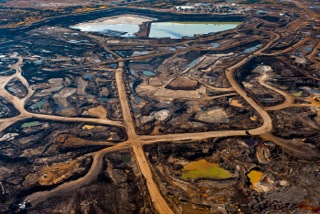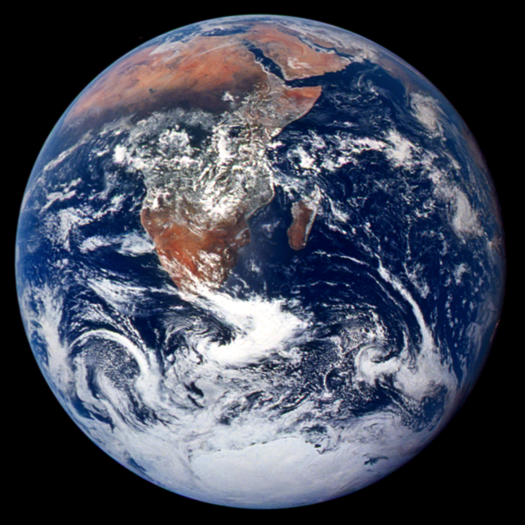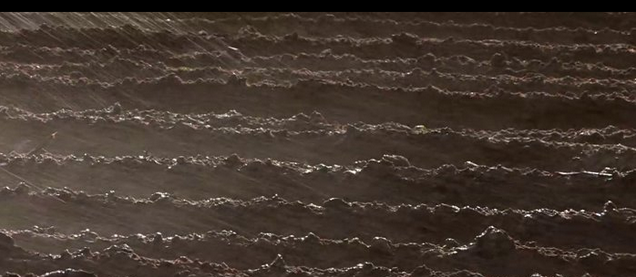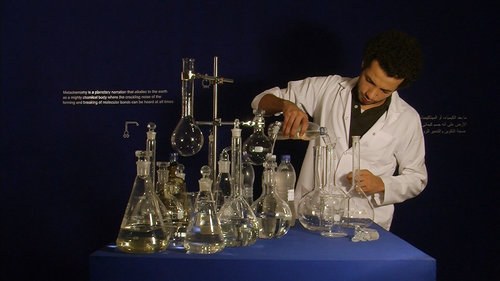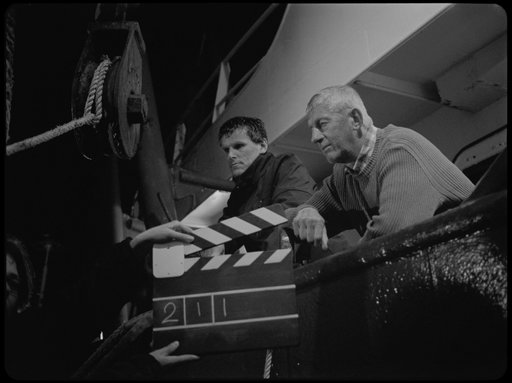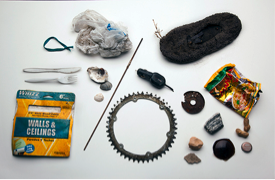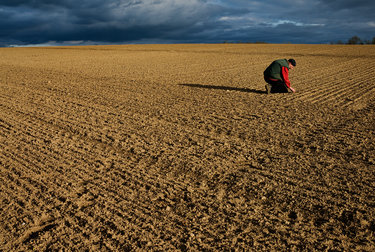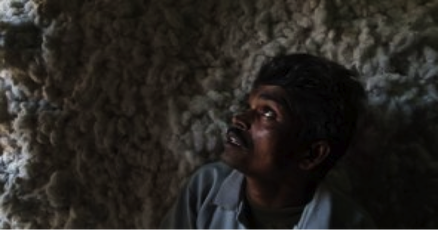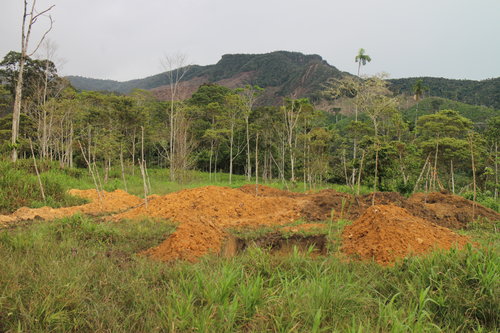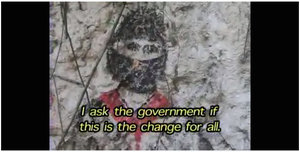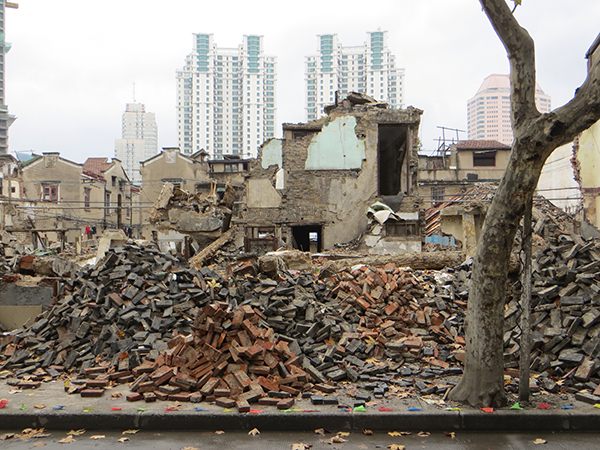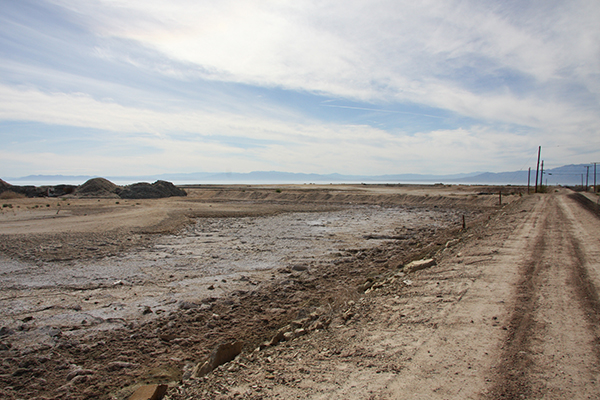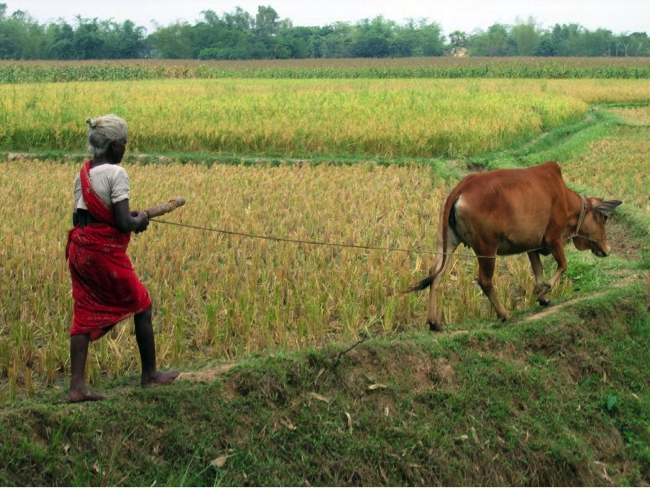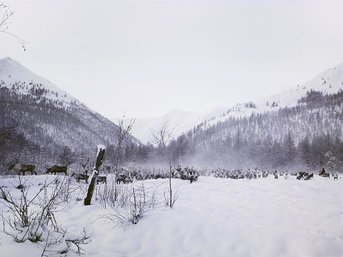Matter matters. For critics working at the interface of science studies, feminism, philosophy, and political theory such as Karen Barad and Jane Bennett, the universe kicks back. While human beings shape knowledge through their culturally embedded perspectives, the things … Continue reading “Radical Materialism Introduction”
Radical Materialism
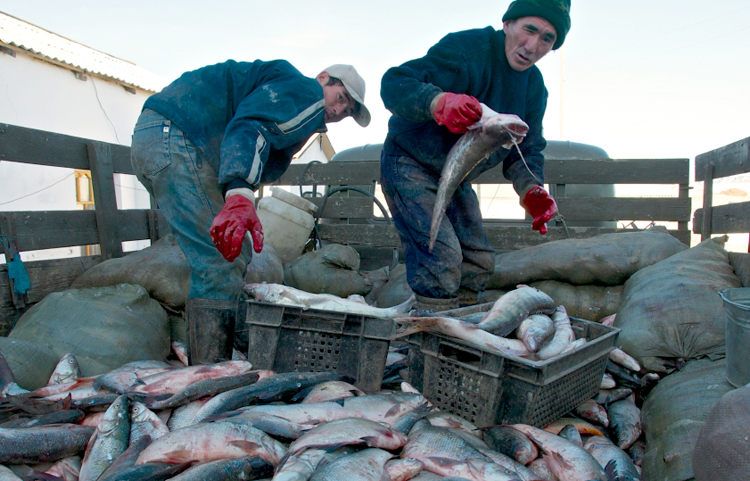
This Periscope features World of Matter, an international art and media project that investigates primary materials (fossil, mineral, agrarian, maritime) and the complex ecologies of which they are a part. Contributions by World of Matter participants along with those by other artist-activists and critics highlight transnational networks of relation that oftentimes entail forms of “slow violence,” with a commitment to grappling simultaneously with the social, the material, the geopolitical, the planetary, and questions of justice.
Earth Seeing
Emily Eliza ScottAmong the most widely circulated photographs of all time is one snapped by astronauts aboard the Apollo 17 spacecraft, just hours after its launch toward the moon, in December 1972. This image, often referred to as the “Blue Marble,” … Continue reading “Earth Seeing”
Decolonizing Nature: Making the World Matter
T. J. DemosWorld of Matter defines a cutting-edge mode of collective artistic and interdisciplinary research, mediated through constellations of texts, images, and videos, which shares the imperative to explore how the world matters — how it enters into both materialization and conflicted forms of valuation.
Metachemistry
Ursula BiemannMany of my video essays have elaborated the convergence of the movement of people, resources, and capital in a globalized world, building the video material into complex human geographies. Deep Weather (2013), by exploring the ecologies of oil and water, … Continue reading “Metachemistry”
The Artist as Coauthor
Siebren de Haan and Lonnie van BrummelenIn the essay “The Author as Producer,” which was written as a speech but never delivered to an actual audience, Walter Benjamin distinguishes two types of authors: the writer who informs, and the “operative writer.”[1]Gerard Raunig, “Changing the Production … Continue reading “The Artist as Coauthor”
A People’s Archive of Sinking and Melting
Amy BalkinA People’s Archive of Sinking and Melting (State: As of Bonn Climate Change Conference, October 2014) is a collection of items contributed from places that may disappear owing to the combined physical, political, and economic impacts of climate change, … Continue reading “A People’s Archive of Sinking and Melting”
The Space-Time of Environmental Imperalism
Morgan BuckAn analysis of postcolonial ecologies requires engaging with the everyday dynamics of ruination and resistance.
Of Seed and Land
Uwe H. Martino “Cotton is in our clothes, in banknotes, cattle feed, gauze, toothpaste, and film rolls. All the while, cotton is traded more unfairly than any other commodity, and its reputation as a natural product is easily exposed as an illusion: cotton uses up more pesticides than any other plant, devastates entire regions such as the Aral Sea due to its excessive thirst, acts as the Trojan horse of genetic engineering, and drives the global industrialization of agriculture.”
Representing India’s “Suicide Economy”
Stacey BalkanThe World of Matter is an “international art and media project [whose collective works critique] the global ecologies of resource exploitation and circulation.”[1]See www.worldofmatter.net WoM artists take to task such instances of exploitation as Monsanto’s “white gold revolution” — … Continue reading “Representing India’s “Suicide Economy””
Rights of Nature
Paulo TavaresWhere James Lovelock’s Gaia meets Pachamama, at the confluence of indigenous knowledge, modern environmental activism, and ecological/climate sciences, the politics of the Rights of Nature were gradually forged in Ecuador.
Refusing the Settler-Colonial Gaze
Sean M. KennedyThe global politics of resource scarcity is a chief theme of World of Matter’s practice, but another scarcity is evident too: a scarcity of representations by Indigenous and subaltern people, whose resources have been most exploited, first by colonialism … Continue reading “Refusing the Settler-Colonial Gaze”
Urban Resources at the Crossroads
Helge Mooshammer“Already we are seeing the excesses of speculative urbanism, which leaves behind acres of crumbling, uninhabited concrete monuments. Indeed, it seems that the urban boom not only consumes vast amounts of land and resources in the process of construction, but also might in fact use up even more in the moment of dissolution.”
Geo-engineering: Climates of Control
Peter MortenbockOh Mister Hatfield, you’ve been good to us: You’ve made it rain in ways promiscuous! From Saugus down to San Diego’s Bay They bless you for the rains of yesterday. But Mister Hatfield, listen now; Make us this vow: … Continue reading “Geo-engineering: Climates of Control”
Provincializing Humanism: Reflections on World of Matter
Micheal Angelo RumoreResponding to our “Postcolonial Ecologies” panel at September’s “Radical Materialisms” conference held at CUNY Graduate Center, World of Matter author Peter Mörtenböck identified two distinct, but interconnected questions animating our discussion. First: How do we align politically, theoretically, and … Continue reading “Provincializing Humanism: Reflections on World of Matter”
The Environmental Dance
Subhankar BanerjeeThe People’s Climate March (PCM) in New York City last September drew nearly 400,000 people, making it the largest environmental rally ever. On the eve of the march, however, critics began to hurl stones. One critic pointed out that … Continue reading “The Environmental Dance”


